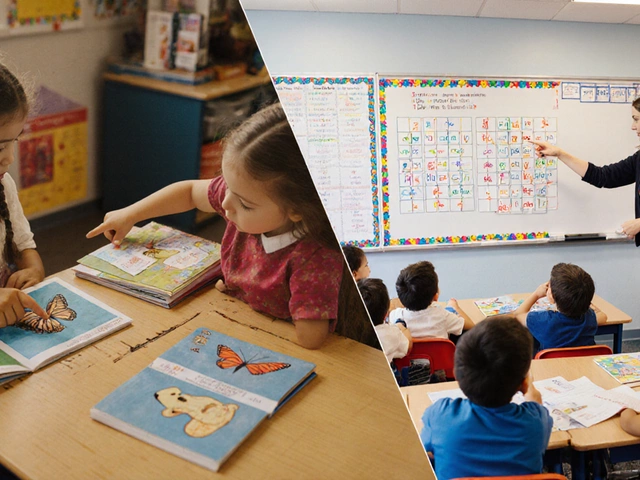
Ever notice how some folks just seem to have something extra? They're not necessarily the loudest in the room but have this energy you want to be around. There's an odd kind of gravity about them—and often, it boils down to a handful of positive traits that make all the difference. Science actually backs this up: a famous study from the University of Illinois found that character strengths, not just IQ, determine your happiness and success later in life. That means nurturing good qualities isn't just fluffy self-help talk, it’s a power move.
Optimism: The Fuel for Resilience
Optimism isn't just wishful thinking or blind positivity. Psychologists like Martin Seligman, the founder of positive psychology, have spent years proving that true optimism is the belief you can influence your circumstances and that setbacks are temporary, not permanent. This mindset difference is huge. Think about people who bounce back quickly after a tough break—they almost always share this quality.
What’s wild is that optimism is contagious and measurable. A Harvard study tracked people for over 10 years and found that optimistic individuals had a 35% lower chance of suffering from major health issues like heart disease. The effect wasn’t magic; it was partly lifestyle choices and partly the stress-buffering effect of a positive outlook.
For anyone thinking optimism is just a trait you’re born with, here’s the cool part: you can actually train your brain. Try this tonight—before bed, jot down three good things that happened during the day, even if they’re tiny. Over a month, most people find it gets easier to spot wins and stay positive. That’s real psychology at work.
If you tend to see the glass half empty, swap out 'Why does this always happen to me?' with 'What can I do about this right now?' That simple flip changes your entire attitude, opens up options, and cuts down on stress. Even big names like J.K. Rowling and Serena Williams swear by reframing negative thoughts in this way, helping them push through the toughest moments in their careers.
Empathy: The Secret to Strong Relationships
You know those people who just get it? You can talk to them about anything—a rough day, an awkward family dinner, something embarrassing—and they never make you feel judged. That’s empathy at work. It’s not about giving perfect advice or fixing problems, but about showing you understand how the other person feels.
Studies prove that empathy is the glue in workplaces and friendships alike. Google ran a massive study, called Project Aristotle, to figure out what makes the best teams click. The top factor wasn’t IQ or skill but 'psychological safety,' which basically means people feel listened to and understood. Teams with higher empathy scored almost twice as high on productivity and creativity.
Empathy isn’t just about being nice. It leads to smarter decisions. For example, top negotiators often spend 80% of their prep time trying to understand the other side’s view, not just arguing their point. This makes conflict resolution smoother and relationships last longer. Want to build this trait fast? Next time you’re in a disagreement, repeat the other person’s main point back to them before responding. People are wired to open up when they know you’re actually listening.
Teaching kids empathy has huge payoffs, too. Schools that run programs like 'Roots of Empathy' see bullying rates drop by up to 50%, and kids do better in grades (Source). For adults, reading literary fiction is a proven method to boost empathy—stories force you to imagine what someone else is feeling. Challenge yourself to put the phone down and really tune in to friends, even if it’s just for 10 minutes a day. The results are kind of jaw-dropping.

Integrity: The Foundation of Trust
When it comes to being the kind of person others trust, integrity sits at the top of the list. It’s more than honesty; it’s about doing what’s right even when nobody’s watching. Think about that coworker who never takes shortcuts, or a friend who keeps their promises, rain or shine. They aren’t flashy, but people follow them anyway.
According to a global Ipsos poll, integrity consistently ranks as the most valued quality in leaders—more than intelligence or charisma. When trust breaks, relationships and teams fall apart fast. That’s why companies spend millions each year on compliance and ethics training, hoping to foster honest behavior. But all that money can’t replace the small daily choices that build your personal reputation.
Research from Notre Dame Business School shows that people who act with integrity tend to make better decisions under pressure, partly because they don’t waste mental energy juggling half-truths or covering their tracks. Here’s something you might not expect: folks with high integrity actually experience less anxiety. If you always know where you stand with yourself, you cut out tons of second-guessing.
Building integrity is pretty straightforward, though not always easy. Start by checking if your words match your actions, especially on small stuff. If you say you’re going to call, call. If you screw up, own it right away rather than making excuses. This sounds basic, but it’s amazing how much trust you can build with just these habits. And trust, in turn, opens up opportunities that talent alone can’t unlock.
Adaptability: Thriving Through Change
If there’s one thing the last few years have taught us—especially post-2020—it’s that the ability to adapt is gold. Whether it’s jumping into a new job, moving cities, or learning tech you never thought you’d need, adaptability means you’re never stuck for long. In a survey after the COVID-19 pandemic, 70% of hiring managers rated adaptability as a top skill, right next to communication and problem-solving.
You might think adaptability is rare, but the truth is, every person has it—if you practice getting outside your comfort zone. Let’s take Patagonia’s company culture as an example. Employees are expected to surf whenever the waves hit, and work hours are flexible. This focus on adaptability keeps people inspired, creates new ideas, and builds huge brand loyalty. Fast Company listed it as one of the biggest markers of long-term business growth.
On an individual level, adaptable people avoid black-and-white thinking. Instead of seeing setbacks as dead ends, they treat every situation as a puzzle. Want to boost this skill? Next time your day goes sideways, pause and ask, 'What can I learn from this, and how can I pivot?' Try mixing up your routines—take a different route home, learn a new recipe, or volunteer for new roles at work. Micro changes train your brain to expect the unexpected.
Here’s the reality: old habits are hard to shake, so start tiny. But those little yeses add up quickly. According to the American Psychological Association, people who make a habit of trying new things score 15% higher on resilience and life satisfaction scales.

Curiosity: The Engine of Self-Improvement
Curiosity is the spark behind every great discovery and invention. Think of Steve Jobs obsessing over fonts, or a chef experimenting with flavors that sound bizarre but end up delicious. Curious people never really get stuck—they’re always asking how and why, which keeps their minds agile.
Researchers at the University of California found that curiosity triggers the same part of the brain that lights up for delicious food or music. That explains why learning something new feels so good! And here’s something wild: adults who routinely learn new things feel happier and even show slower cognitive aging, according to data from the Rush Memory and Aging Project.
One tip to flex your curiosity muscle: treat every day like a mystery to solve. When you meet someone new or try out a skill, don’t just make assumptions—ask specific questions and really listen to the answers. It might feel awkward at first, but this habit unlocks opportunities you might never spot otherwise. Want tangible proof? Google reports that teams who brainstorm questions—before giving any answers—come up with 100% more ideas, half of which are easier to implement and way more creative.
To keep curiosity alive, give yourself permission to be a beginner. Don’t judge yourself for not knowing something, whether it’s chess strategy, coding, or how to change a car tire. You’ll be surprised at how much your confidence grows once you let your guard down. Even five minutes a day watching an expert online or reading about a new topic adds up fast. And when you share your curiosity with others, you inspire them to do the same.
| Trait | Key Benefit | Science-backed Fact |
|---|---|---|
| Optimism | Reduces stress, boosts health | Harvard study: 35% lower heart disease risk |
| Empathy | Strengthens relationships | Project Aristotle: Teams with high empathy are nearly twice as productive |
| Integrity | Builds trust | Notre Dame: Integrity linked to better decision-making and less anxiety |
| Adaptability | Enhances resilience | APA: 15% higher life satisfaction from trying new things |
| Curiosity | Sparks innovation | UC research: Curiosity lights up brain's reward system |
The coolest thing about positive traits? You don’t need to be born with them—they grow every time you practice. Pick one and set a mini-challenge for yourself this week. Maybe it’s pausing to ask a curious question, sending a quick apology to clean up a mistake, or just swapping out one negative thought for a positive reframe. Each step pays off in ways big and small, shaping you into someone people naturally want to be around—and someone you’ll feel proud to become.


